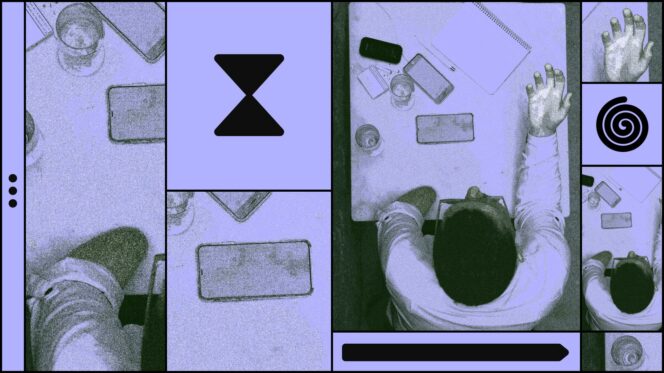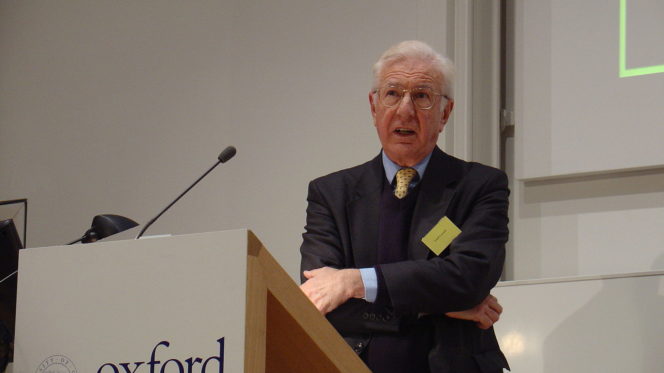Britain’s Inhumane Benefits System Is Giving People PTSD

Listen to this article as audio:
If you want to screw up someone’s mental health, there is a basic four-part formula. First, you deprive the person of the means to feel safe. Second, you lower their status in relation to other people. Third, you make them feel that the reasons for their predicament are their fault. Fourth, you deprive them of a space outside this situation to see what is going on. This sounds like a dystopian fantasy, but it is the lived reality of many benefits claimants; and it is, demonstrably, making people both sick and sicker. What evidence is there for this claim? And why is now a pivotal moment in deciding whether what happens next makes the situation better or worse?
First, the evidence. Welfare has been grossly underfunded for years. It is difficult to emphasise how bad the situation is. It is common to hear of claimants having to choose between feeding the kids, or themselves, or turning the fridge off to quickly switch the heating on. The baseline shame and anxiety of not having the means to live with a sense of dignity had been dampened somewhat by the £20 increase in universal credit that started during the pandemic. However, this is being removed at the very moment when inflation and living costs are on the rise, plunging even more households into poverty. This means that the cancellation of the uplift is in effect a down lift, a double-cut; and one that makes a joke of the government’s stated interest in mental health. Why? Well, psychological precarity and social precarity are inextricably intertwined with one another, meaning that equity of means must be the first step in any coherent mental health policy.
Second, it is not only that income on universal credit will decrease relative to current income; it is that income will decrease for some but increase for others. This is because the government is fudging what it has repeatedly been told will be a disaster by implementing an increase for people on universal credit who are in work via changing the taper level. Whilst it is fantastic that working people on benefits will receive more, the move widens the gap between the working poor and – by virtue of the provision change – the workless who are treated as worth less. This has dangerous connotations of the strivers versus skivers discourse which continues to wreak havoc not only on welfare provision but claimants’ minds. This brings us to the third point.
Psychological warfare.
The way that welfare policy now governs claimants is not just via denying them the means to live comfortably, something that is rather bizarrely conceptualised as ‘incentivising’ claimants to seek work more earnestly. Welfare governmentality also works by injecting precarity into the psyche because it doesn’t allow for a situation to be as it is. It insists on constant upward trajectory, the core neoliberal fantasy, which is not only exhausting and demoralising but maddening when there are no jobs to be had, or someone remains too ill to work. Being on benefits, now, is more than a full-time job, because it’s near impossible to turn off as a demand. The practical demands for constant updates and activities, such as applying for multiple jobs you know you won’t get and aren’t well enough to do, are bad enough. But the psychological violence is even worse. As Lynne Friedli and Robert Stearn showed in a landmark paper, the DWP now demands an upbeat, go-getting mentality where any psychological traits that are deemed market-unsuitable, such as despair, are to be excised; the cost of not doing this is punishment via sanctions.
Many claimants have welfare-induced PTSD as a consequence; fluctuating between anxious self-states trying to meet the requirements of government, hypervigilance at being judged as deficient or fraudulent, and depressive collapses as the moral accusation that the system implies starts to be felt personally. Mental illness, at its core, thrives via attacking the self: “You’re a terrible person”, “no one believes you”, “you’re a failure”. If environments that we live in send out these messages, sooner or later we internalise them and enact them on ourselves via thoughts, or inner voices. The net consequence? Both individuals and society become sick or sicker. That is unless we have a space outside what is being done to us to see our situation and depersonalise it in which case we can keep our sense of self safer for that bit longer.
Sick of cuts.
The state, however, has drastically cut access to these spaces. They have done this, most crucially, by cutting funding for disabled people’s organisations and community infrastructure. They have also done this via the neoliberalisation of mental health provision, the traditional last refuge for those most let down by society. In a fury of producing ever quicker, faster and cheaper talking therapies to mop up the mental damage of neoliberalism, the government has drawn funding away from those most in need. It is very difficult, now, to access a space where one can speak freely. Instead, the tasks of therapy are often pre-written by therapy protocols, the funding of which derives from a fiscal promise – to be cost-efficient by getting people back to work – which shapes goals.
A similar ideology is central to the recovery agenda which now dominates mental health ideology. Again, the overwhelming emphasis is on that ultimate neoliberal fantasy, constant upward progression which in this case means discharge from mental health services via recovery colleges, for people who often need what was once available – proper long-term support. Many people have relapsed, been hospitalised or attempted suicide as a consequence.
Despite all this, disabled people’s organisations have perhaps never been more active, with social media aiding the distribution of what psychiatric survivors have long argued for, a renewed social model of disability (and indeed madness). With public attitudes having considerably softened to the unemployed, a pattern we saw emerging even before the pandemic, and younger generations passionate about mental health, we have a real opportunity to create a levelling agenda that puts dignity first and fiscal contribution… well nowhere near any discussion of what it means to be valuable as a human being. To do this, we have to join up the dots in public thinking to ensure everyone clearly knows that if you suppress people’s means to survive, you suppress their spirit and make society sicker.
Jay Watts is a psychiatric survivor, activist and consultant clinical psychologist.
This article is part of a focus on disability. Read more here.
Jay Watts is a psychiatric survivor, activist and consultant clinical psychologist.


